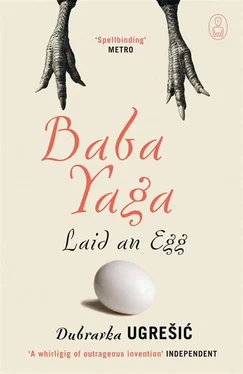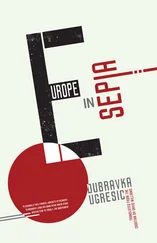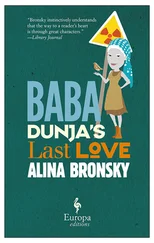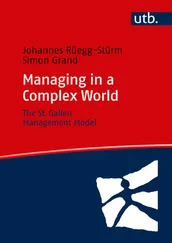If I bought a newspaper in the morning it would be gone by afternoon.
‘I lent your paper to Marta, my neighbour. She hasn’t the money to buy a paper. She’ll bring it back. But you’d read it already, anyway.’
When I bought myself food it, too, would end up at the neighbour’s.
‘That cheese you bought – didn’t suit me,’ she’d say. ‘I gave it to Marta’s sister.’
‘And the biscuits?’
‘I tossed them out. They were nasty, the look and the taste.’
She would object if I ever hung any of my clothes in her wardrobe. She left the bottom-most shelf in the shoe cabinet for my shoes. My things in the bathroom took up only a small corner, and she’d immediately protest if by any chance my things mingled with hers.
‘I haven’t touched a thing since you left. Everything is where it is supposed to be!’ were her first words to me whenever I came back.
This only meant that she had fought off the urge to tidy up and put everything in order.
I came often. She couldn’t spend her summer alone, or her Christmas holidays, or, of course, her birthday.
‘You’ll be here for my birthday, won’t you?’
Ever since she’d got sick I came more often and stayed longer. Each time I arrived I could see her beaming with genuine delight. Tears would fill her eyes when I left as if these were our very last goodbyes. But as soon as I was out the door, I knew she would head straight for the broom cupboard, roll the Hoover out, hoover ‘my’ room, put everything back where it was supposed to be, go to the bathroom, take all ‘my’ bits and pieces, the toothbrush, toothpaste, face cream, shampoo, and arrange them in ‘my’ cupboard. She was undoubtedly sniffling all the while, dabbing at the tears, and berating cruel fate for dealing her the destiny of an old age lived alone.
She had lost her feel for cooking, she no longer had the will or the strength, so I took over. But she couldn’t leave it be. She’d come into the kitchen, elbow me in the cramped space, rinse a few dishes, carp that I should do it this way, mutter that I would never learn a thing. The kitchen was the realm of her absolute authority, and she was defending it with her last ounce of strength.
When she heard me on the phone with someone, she’d come into ‘my’ room, she’d ask or say something, raising her voice like a parakeet in a cage, so that I would have to hang up. She did this without thinking, as if not aware of her actions.
‘I have to call the old witch,’ she said, seeing me holding the receiver.
‘Sure, let me finish this.’
‘I called her a couple of times and no one is picking up.’
‘We’ll call her.’
‘Ask Zorana, she’ll know.’
Zorana was Pupa’s daughter.
‘I’ll ask, just let me finish this.’
She stood, clutching the cupboard, and watched me.
‘And Ada hasn’t called.’
‘Aba.’
‘She hasn’t called, either.’
‘She will.’
‘We really ought to call them.’
‘Them’ is her way of referring to my brother and his family.
‘We called them this morning!’
‘Open the balcony store, the room is stuffy,’ she said and padded over to the door.
‘The balcony door,’ I said.
‘There, I’ve opened it.’
She had tidied everything and set it to rights, including the homely piece of junk , the cupboard, which I had brought into the apartment, just as she had been cleaning up and tidying her whole life. Only once, in a conversation about our first house, with its capacious garden, did she admit,
‘I was more anxious that the vegetable beds be hoed in straight lines than I was with what I’d plant or how it would grow.’
Her instalments to the funeral fund had been made regularly for years, so her funeral was fully paid for: her burial with all the formalities was guaranteed. Her mental and emotional territory had narrowed, it was all set out – like a box. Here, in this box, her two grandchildren, my brother and his wife were knocking about, along with two or three old friends (in that order of importance).
I was in there, too, of course. Sometimes she seemed to love our talks on the phone even more than our conversations in person. As if she felt freer over the phone.
‘I am sitting in your chair,’ she’d say, referring to my desk chair, ‘and looking at the flowers on the balcony and thinking of you. If you could only see how the flowers are blooming! It’s as if they’re weeping because you left.’
And then, as if shaken by her giddy sense of freedom, she would add in an unnaturally bright tone,
‘Goodness, how empty my life is!’
She had snapped shut almost all of her emotional files. One of them was still slightly open: it was Varna, the city of her childhood and youth. That is why she let the unknown woman from Bulgaria into her realm with such ready warmth.
Everything was badly organised. Contact with the organisers of the literary gathering ‘Golden Pen of the Balkans’ in Sofia had reached a dead end. They left me to make the reservations and buy the plane ticket myself. At least Aba responded to my emails. The real goal of my trip was to visit Varna. My participation in ‘Golden Pen of the Balkans’ had simply been a handy excuse. Aba replied quickly that she would join me, if I didn’t mind; she had a cousin in Varna she hadn’t seen for years and several friends. I didn’t mind.
Mum wound me up and set me moving in the direction of Varna; she guided me by remote control like a toy, dispatched me to a place she could no longer travel to on her own. Centuries ago the wealthy would send someone else off on the hajj or to the army in their stead, as a bedel, a paid surrogate. I was my mother’s bedel. She said I must look up Petya, her closest friend from childhood and her teenage years. Petya had been stricken by Alzheimer’s, and to make matters worse she was being looked after by her son, an alcoholic. Petya’s address, however, had vanished, strangely, from Mum’s address book.
‘Ask the police,’ Mum insisted.
‘And Petya’s last name?’
‘Well, her husband’s name was Gosho.’
‘His surname?’
A shadow of distress flitted across her face.
‘Fine, I’ll enquire with the police; they will be sure to know,’ I hastened to add.
She did not ask me to seek out my grandmother’s grave. Grandma and my mother’s sister were both buried at the city cemetery in Varna. At one point Mum had let Grandma’s friends also use the gravesite. Graves were, apparently, expensive, and there had been a lot of deaths.
‘I am so foolish. I let them use the grave, and later none of them thanked me,’ she complained.
Neither did she mention Grandpa’s grave. She couldn’t. She didn’t know where exactly he was buried. She had received the death notice too late. Those were hard times, two different countries, there wasn’t much she could have done about it. Except for Petya, who had sunk into dementia, there was no one left in Varna. The main task of my mission as bedel was to take photographs of Varna and show the pictures to Mum on my new laptop. It was my idea to take the pictures, and for that purpose I had purchased a little digital camera.
I asked Aba to reserve a ticket for my flight. At the Bulgarian Airlines office in Amsterdam they explained it would be cheaper to buy the ticket for Varna in Sofia. Aba replied that the flight was very expensive and suggested we go by train. I refused; I had heard all kinds of stories about dilapidated old Bulgarian trains plagued by thieves. I insisted on the plane. Who could bear the prospect of jouncing for seven or eight hours in a bus from Sofia to Varna! She answered politely that the plane would be too expensive for her. She would take the bus, but she had reserved a plane ticket for me. She put me to shame. I agreed, of course, to take the bus, why not. The hours of trundling through the late autumnal Bulgarian countryside would certainly have their charms. We sparred over the hotel. Aba suggested several less expensive versions. I immediately envisioned rundown communist hotels, with broken heating systems, and answered that I preferred a decent hotel in the centre of town and that I didn’t care about the price.
Читать дальше












